Category: Technology
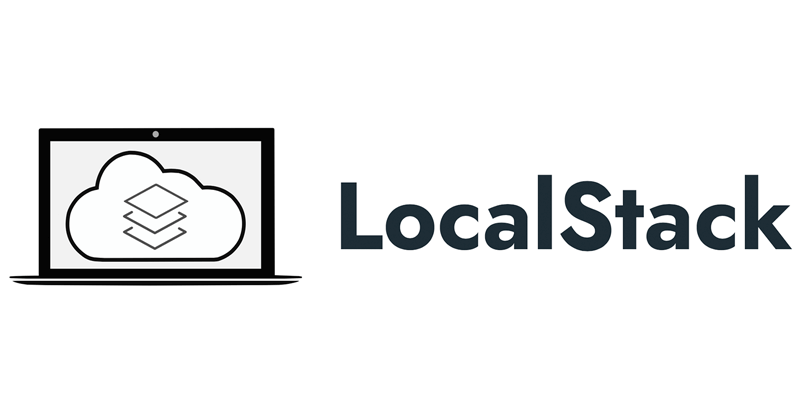
Using LocalStack
Local development is always a priority for us at Don’t Panic Labs. We want a great local development experience because it allows each developer to work independently. Part of having a great local development experience means having all the tools you need on your developer machine. If you are running a system that needs access…
Read more…

Azure DevOps Delivery Plans
Designing projects is challenging, which is probably a big reason why some people don’t even try. But just because something is difficult doesn’t mean it isn’t worth doing. Sometimes the most valuable things we do are difficult, and often the value in software development is in the difficult parts. Designing projects has a few obvious…
Read more…
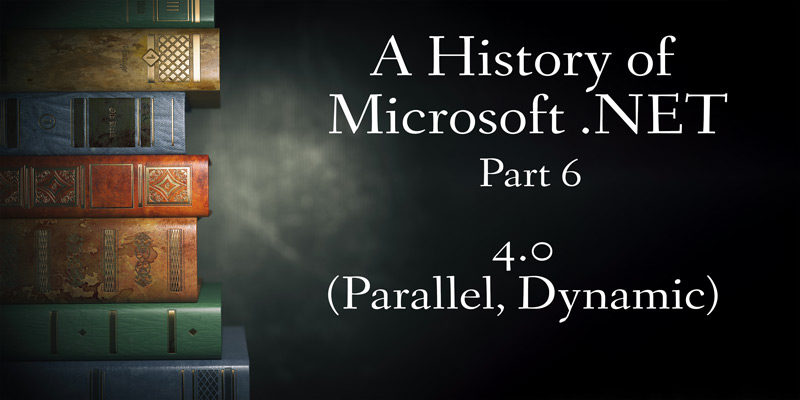
A History of Microsoft .NET, Part 6: 4.0 (Parallel, Dynamic)
.NET Framework 4, in some ways, is “the” .NET. This is when .NET felt like a super solid platform that didn’t need anything else. It was great. Ironically, I don’t think .NET 4 added much over .NET 3.5, but it felt like a clean solution was fully brought together. It was released alongside Visual Studio…
Read more…
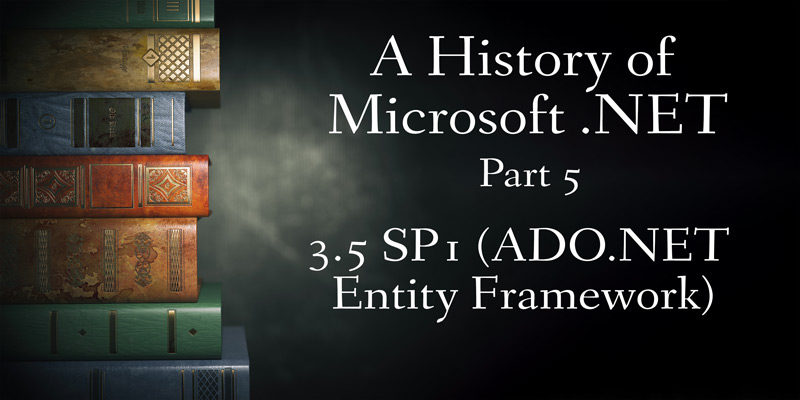
A History of Microsoft .NET, Part 5: 3.5 SP1 (ADO.NET Entity Framework)
SqlConnection, SqlCommand, SqlDataReader, and SqlDataAdapter are classes we were very familiar with in 2008. If you wanted to write a database query, you were probably using a combination of these classes. Things changed in 2008 with the release of .NET 3.5 SP1, giving .NET a Microsoft-provided Object-Relational Mapping (ORM). A lack of ORM was becoming…
Read more…
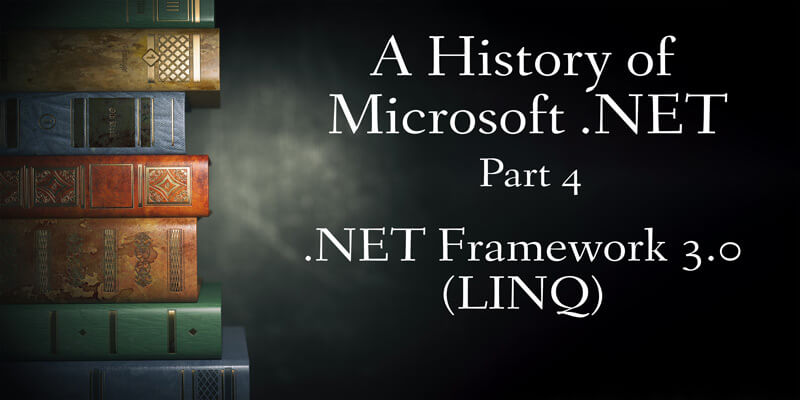
A History of Microsoft .NET, Part 4: .NET Framework 3.0 (LINQ)
We have covered a lot of history in this series so far. We have covered many incremental improvements to C# and .NET. Things such as Auto-Implemented Properties were improvements, but they felt like incremental improvements to the language (although I think that one notable exception would be the addition of Lambda expressions). LINQ wasn’t a…
Read more…
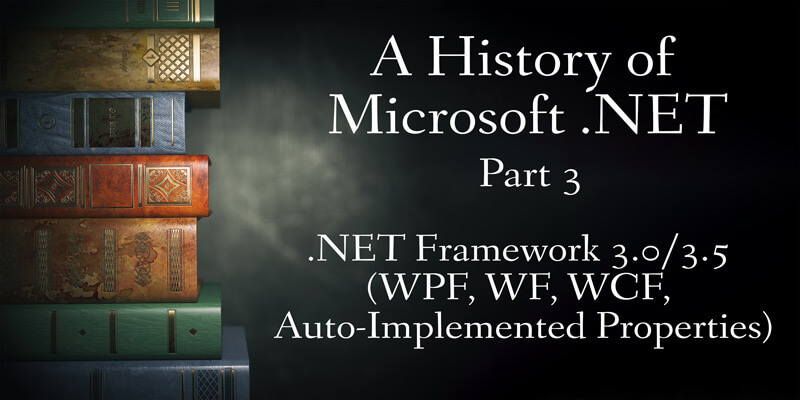
A History of Microsoft .NET, Part 3: .NET Framework 3.0/3.5 (WPF, WF, WCF, Auto-Implemented Properties)
.NET 3 was a pretty big change, maybe the most significant change since the creation of Microsoft .NET Framework. It was fundamentally changed in ways that brought in many amazing features into the language. Here I will cover WPF, WF, WCF, and Auto-Implemented Properties. The first change was WPF, which stands for Windows Presentation Foundation….
Read more…
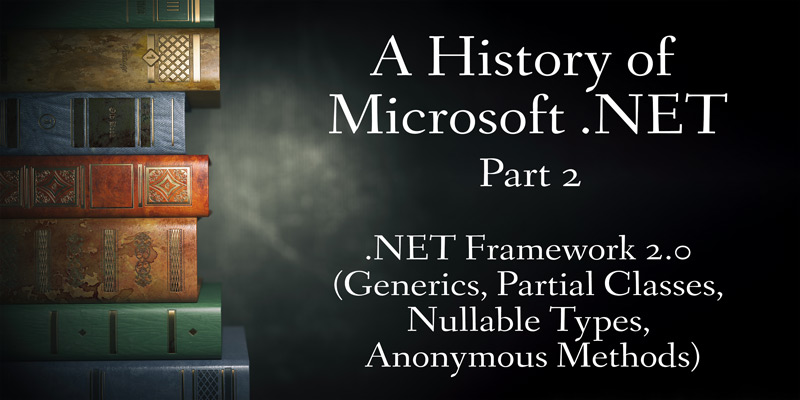
A History of Microsoft .NET, Part 2: .NET Framework 2.0 (Generics, Partial Classes, Nullable Types, Anonymous Methods)
When .NET Framework 2.0 was initially released, I was working on a .NET Framework 1.1 project that was becoming a bit of a pain. Moving to 2.0 seemed like just the thing the project (and I) needed. The addition of support for generics in 2.0 was a win in and of itself, but also adding…
Read more…
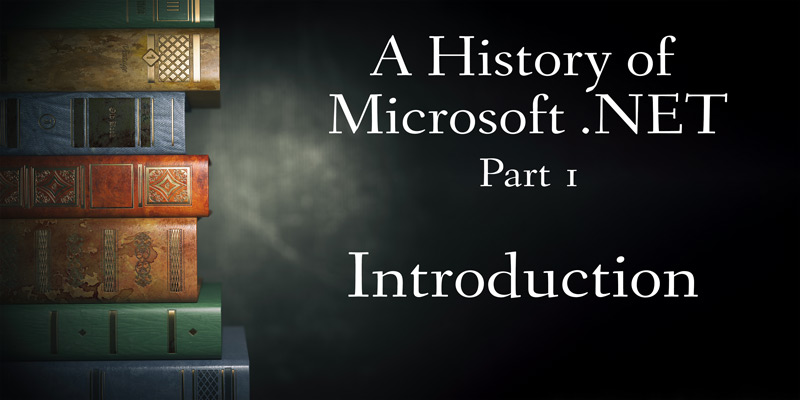
A History of Microsoft .NET, Part 1: Introduction
When you’ve been writing software as long as I have, it’s fun to look back at how far technology has advanced throughout your career. I’ve been thinking a bit lately about C and .NET, and basically the whole Microsoft stack. This led me down the rabbit hole of reading and remembering (and sometimes finding out…
Read more…

What It Feels Like to Turn 50: A Reflection on Email
2021 marks the 50th anniversary of that ubiquitous technology we love to hate: email. And while it’s a nuisance for many of us, I believe we’d be lost without it. Originally known as electronic mail when it was developed in 1971 by Ray Tomlinson, email was created as a way for ARPANET users to send…
Read more…
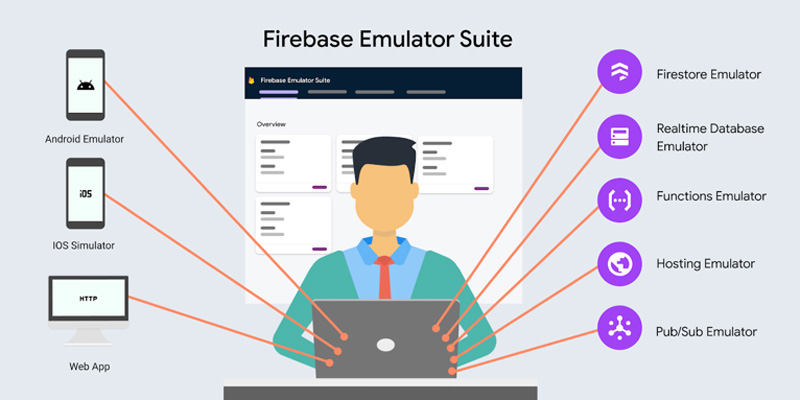
Firebase Emulator!
Having the flexibility to do local development is essential for successful projects. While we have successfully completed projects without a good local development story, I feel we often regret it. Without a good local development story, we often have multiple developers sharing cloud resources. When developers share cloud resources we often end with contention over…
Read more…